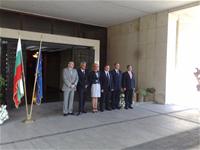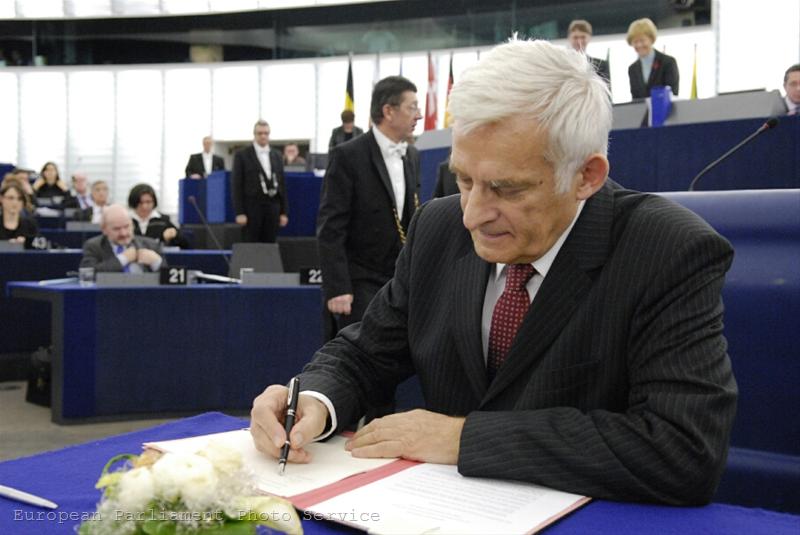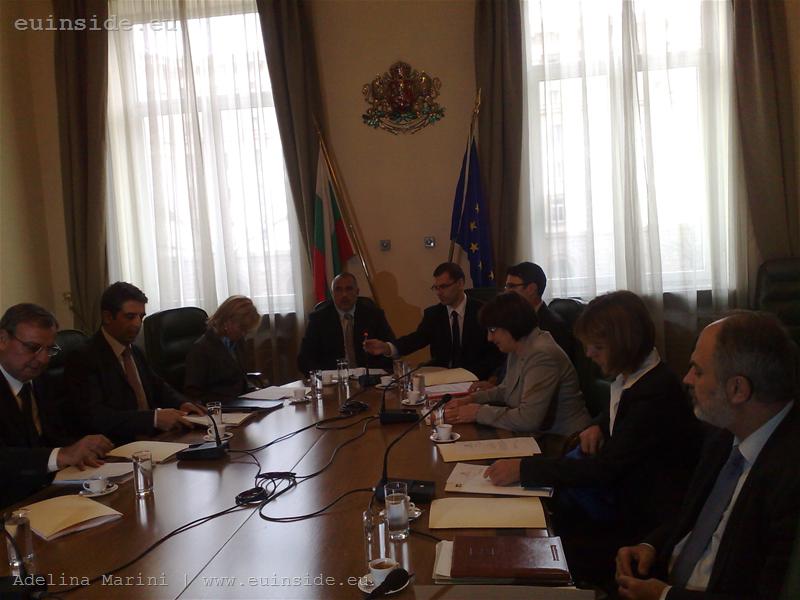Bulgaria has a serious problem with the EU funds
Adelina Marini, August 25, 2009
 The new deputy foreign minister who will be responsible for the European affairs, Krasimir Kostov, confirmed for the media that on 4 EU programmes the European Commission has remarks and, therefore, the the compliance assessments will be returned for revision. The programmes in question are "Transport", "Technical assistance", "Administrative capacity" and "Competitiveness". "After the necessary corrections are put in place in the compliance assessment documents they will be returned in Brussels again and the Commission will have 2 months to say whether the money will start to flow to Bulgaria or not. There are preliminary payments and, therefore, if the operational programmes are rejected, we will have to return this money", added Mr. Kostov.
The new deputy foreign minister who will be responsible for the European affairs, Krasimir Kostov, confirmed for the media that on 4 EU programmes the European Commission has remarks and, therefore, the the compliance assessments will be returned for revision. The programmes in question are "Transport", "Technical assistance", "Administrative capacity" and "Competitiveness". "After the necessary corrections are put in place in the compliance assessment documents they will be returned in Brussels again and the Commission will have 2 months to say whether the money will start to flow to Bulgaria or not. There are preliminary payments and, therefore, if the operational programmes are rejected, we will have to return this money", added Mr. Kostov.
The operational programme "Transport" has the biggest budget for the period 2007-2013 - over 2 bn euro, followed by "Competitiveness" with 1.1 bn euro, "Technical assistance" and "Administrative capacity" are the smallest of all the 7 programmes with, accordingly - 48 mn euro and 181 mn euro. So far, on "Administrative capacity" 62 mn levs are spent (31.79 mn euro) and there are signed contracts on the programme for about 140 mn levs (71.79 mn euro).
According to Yuliana Nikolova who is taking over the control over the EU funds in the Council of Ministers, this is not the biggest drama. So far Bulgaria has absorbed around 1% of the money for  the whole budget period (2007-2013) which is 6.8 bn euro and from the money, transferred in advance we have spent 10%. "The bad thing in this situation is not that we are late, the problem is that we have lost the confidence of Europe. The first deadline for the compliance assessment documents was in the end of 2007, as far as I remember. The we had received 1 year postponement and, obviously, we will miss it again. The hardship now is that whatever postponement we get now, the confidence is so much undermined. The new government will have some kind of credit of confidence but it will be scrutinized much more than any other government before. We are in a situation in which we have no other option but act", Ms. Nikolova added for euinside.
the whole budget period (2007-2013) which is 6.8 bn euro and from the money, transferred in advance we have spent 10%. "The bad thing in this situation is not that we are late, the problem is that we have lost the confidence of Europe. The first deadline for the compliance assessment documents was in the end of 2007, as far as I remember. The we had received 1 year postponement and, obviously, we will miss it again. The hardship now is that whatever postponement we get now, the confidence is so much undermined. The new government will have some kind of credit of confidence but it will be scrutinized much more than any other government before. We are in a situation in which we have no other option but act", Ms. Nikolova added for euinside.
Another element of the problem is that in the middle of any budget period, which this time is in 2010, the EU is revising the realisation of the framework and if a country has low EU funds absorption, the money for it will be transferred to a country that demonstrates maximum effectiveness. Therefore, even if the Bulgarian government can do the impossible and secures the stable absorption, this will not guarantee that the budget of 6.8 bn euro will not be decreased which will put our country in a very disadvantageous position when the negotiations for the next financial perspectives, starting 2014, start.
Yuliana Nikolova also said that now 5 operational programmes are in question because only for them the government has sent compliance assessment documents in Brussels since last year the Commission returned the documents of all the 7 programmes. The remaining 2 programmes - "Regional development" and "Environment" are still to be evaluated by the Commission. Last year when the documents on the 7 programmes were returned, the main problem was that the auditing body, working horizontally for all programmes, had insufficient administrative capacity. That is why it was transformed into an executive agency "Audit of the EU funds".
A source of euinside said that again the problem is the same - the capacity of the auditing body is again questioned as well as the integrated online system which is supposed to contain all the information, related to the projects because it is still not working. This means that no matter how well a programme is working, it will be frozen until the problem with the auditing body is solved.
On the 9th and 10th of September the prime minister Boyko Borisov is heading a large delegation to Brussels where, among others, meet the president of the Commission Jose Manuel Barroso. According to the Ministry of Foreign Affairs the main aim of the visit is the discussion of all issues in the EU-Bulgaria agenda, including the problem with the funds.
 | © European Parliament Photo Service
| © European Parliament Photo Service | © Audiovisual Service
| © Audiovisual Service | © euinside
| © euinside